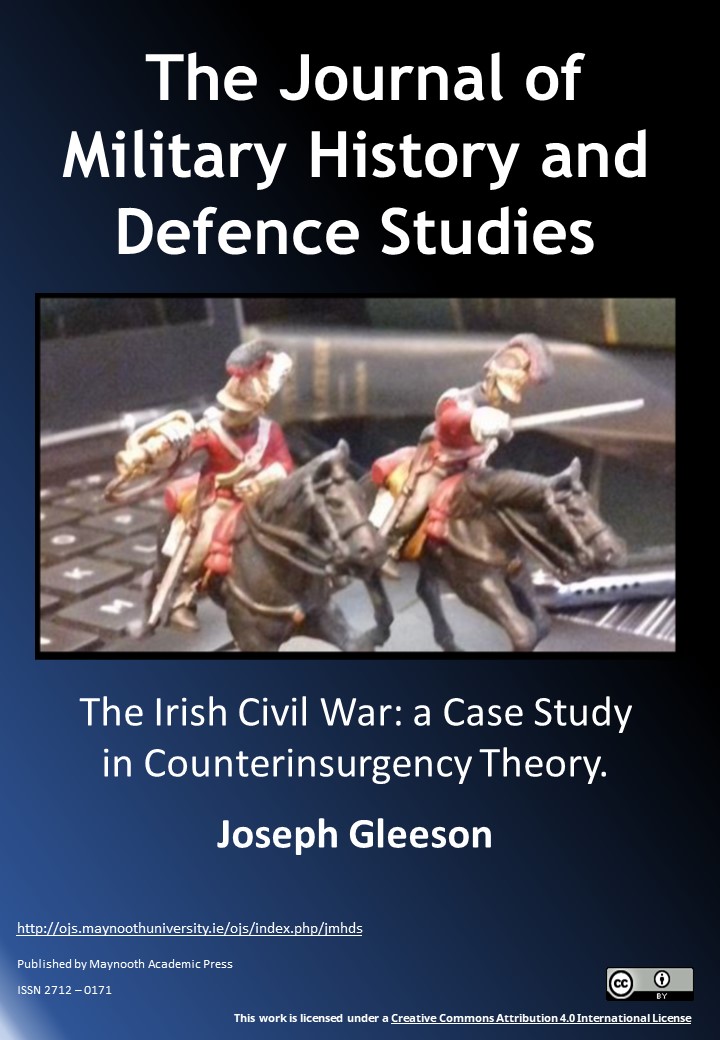The Irish Civil War: a Case Study in Counterinsurgency Theory.
Abstract
This paper, written during the centenary of the Irish Civil War, explores some of the key theoretical aspects of counterinsurgency within the context of what was ultimately a successful campaign and explains how this campaign continues to provide lessons for the contemporary battlespace. It examines how the challenges that were faced by the Provisional Government and the National Army were overcome, which saw the military forces of the new state conduct joint and combined operations across both conventional and guerrilla warfare styles that successfully defeated the anti-Treaty forces.
This paper focusses on the themes of intelligence led operations and modern counterinsurgency theory to ascertain the effectiveness of the response of the National Army and consider if there are lessons to be learned in the modern context. In order to progress the discussion on the Civil War, there is an examination of intelligence led operations, which highlights the ethical issues caused by crossing the line of acceptable norms, such as a breakdown in military discipline and the use of torture to glean information.
The findings of this paper highlight a number of pertinent matters such as the need for a comprehensive and joint military and government approach to counterinsurgency, as well as the need for the military to continue to be able to conduct joint and combined operations across the spectrum of warfare. This is made clear from the operations conducted in the urban environment during the Civil War, which are all the more applicable when it is noted that the world’s urban population is on the increase. The key lessons from operations conducted in the rural areas is that the need to provide security and normality to the population is paramount. Throughout all of these operations, intelligence led operations remain crucial, with a focus on structures rather than the temptation to resort to less than ethical methods.

Copyright (c) 2024 Journal Of Military History and Defence Studies

This work is licensed under a Creative Commons Attribution 4.0 International License.

 This work is licensed under a
This work is licensed under a 
